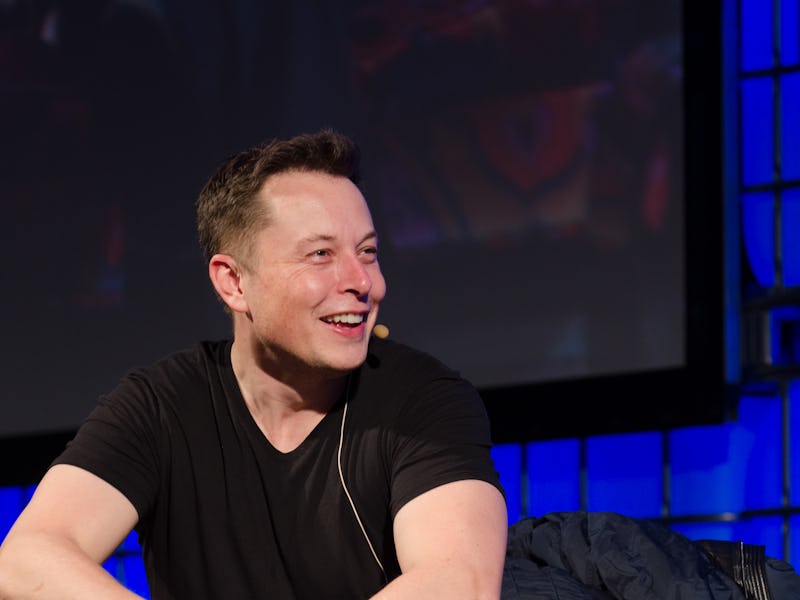Elon Musk Urges for Human-Machine Brain Link After OpenAI's 'Dota' Win
Musk is worried about the A.I. future.

Elon Musk praised the work of the OpenAI team on Monday, after a set of artificial intelligence bots beat a semi-professional team at the Dota 2 video game in a San Francisco showdown Sunday. Musk, who co-founded the research firm, marked the victory by reiterating the need for a brain-computer interface that would enable man and super-smart machine to coexist peacefully.
The “OpenAI Five” bots team, which trained by playing the equivalent of 180 years’ worth of games, beat a human team comprised of ex-professionals and Twitch streamers ranked in the 99.95th percentile of players. The game, released in 2013, demands strong teamwork as players choose from over 100 characters and battle by trying to destroy the other team’s base. While the machines beat the humans in the first two five-versus-five games, it fell in the third match after spectators were allowed to choose the playable characters for the machine team and scuppered its chances against the humans.
See more: Elon Musk’s OpenAI Dota Dreamteam Sounds Pretty Weak, Actually
Musk has spoken before about the need to develop a symbiotic relationship with machines before it’s too late. He said in late 2016 that the “evil dictator A.I.” will prove powerless if “we are the A.I. collectively,” which can be achieved “by improving the neural link between your cortex and your digital extension of yourself.” He founded Neuralink to tackle this issue, which has kept a low profile bar one explainer about neural links in April 2017. A March report claimed the firm planned to test on animals at one stage.
OpenAI’s win sounds like a big step toward something larger, but it took a lot of processing power to reach its goals. The team used 128,000 processor cores and 256 graphics processors to train on what’s called “Proximal Policy Optimization.” The team stated that it’s tackling Dota 2 based on the belief that “systems which solve complex video games will be highly general, with applications outside of games.”
Musk, who has highlighted the accelerating advancement of these technologies, wants to act before it’s too late. Neuralink claimed in 2017 it will launch a product “that helps with certain severe brain injuries (stroke, cancer lesion, congenital)” by around 2021, one step toward more ambitious projects. Beyond these projects, Musk has called on state governors to regulate A.I. and provide public oversight.
OpenAI’s victory may seem impressive, but Musk may not be celebrating too hard. Ahead of the match, he told one Twitter user that he wanted the humans to emerge victorious.